Antioxidants – some may have heard of them, some may not. But it’s a good idea to know the health benefits of antioxidants.
What are antioxidants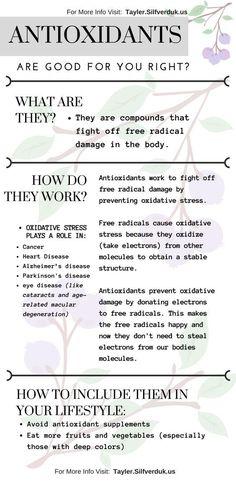
Antioxidants are complex substances in the body that inhibit oxidation. They can be natural or man-made. Oxidation is a chemical reaction that can generate free radicals, consequently leading to chain reactions that may damage the cell membranes and other structures of organisms. Free radicals are molecules formed when the body breaks down food or when you’re exposed to tobacco smoke or radiation. Antioxidants such as thiols or ascorbic acid cease these chain reactions.
Free radicals have been connected to a variety of diseases that include heart disease and certain cancers. For more information on free radicals read the article: What are Free Radicals and Why Are They Bad.
Where are antioxidants found
Antioxidants are generally found in food. Examples of antioxidants include vitamins E and, C, carotenoids such as beta-carotene, lycopene, lutein, and zeaxanthin and selenium.
Vegetables and fruits are plentiful sources of antioxidants.
Plant based foods are rich sources of antioxidants. They are most abundant in fruits and vegetables, additionally other foods including nuts, whole grains and a few meats, poultry and fish.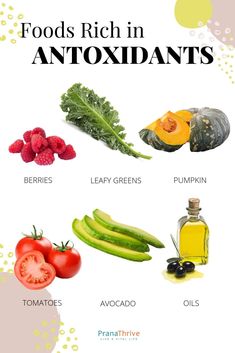
Good sources of specific antioxidants include:
- anthocyanins – eggplant, grapes and berries
- allium sulphur compounds – leeks, onions and garlic
- beta-carotene – pumpkin, mangoes, apricots, carrots, spinach and parsley
- cryptoxanthins – red capsicum, pumpkin and mangoes
- catechins – red wine and tea
- copper – seafood, lean meat, milk and nuts
- flavonoids – tea, green tea, citrus fruits, red wine, onion and apples
- isoflavonoids – soybeans, tofu, lentils, peas and milk
- indoles – cruciferous vegetables such as broccoli, cabbage and cauliflower
- lycopene – tomatoes, pink grapefruit and watermelon
- lignans – sesame seeds, bran, whole grains and vegetables
- lutein – green, leafy vegetables like spinach, and corn
- manganese – seafood, lean meat, milk and nuts
- polyphenols – thyme and oregano
- selenium – seafood, offal, lean meat and whole grains
- vitamin A – liver, sweet potatoes, carrots, milk, and egg yolks
- vitamin C – oranges, blackcurrants, kiwifruit, mangoes, broccoli, spinach, capsicum and strawberries
- vitamin E – vegetable oils (such as wheatgerm oil), avocados, nuts, seeds and whole grains
- zoochemicals – red meat, offal and fish. Also derived from the plants that animals eat.
- zinc – seafood, lean meat, milk and nuts
Flavonoids, flavones, catechins, polyphenols, and phytoestrogens are all kinds of antioxidants and phytonutrients, and all of them are found in plant-based foods.
Each antioxidant serves a different purpose and is not interchangeable with another. This is why it’s important to possess a varied diet.
Evidence suggests that antioxidant supplements do not work as well as the naturally occurring antioxidants in foods like fruits and vegetables. A well-balanced diet, which incorporates consuming antioxidants from whole foods, is best. However, if you desire a supplement, seek supplements that contain all nutrients at the recommended levels. There is a reliable on-line supplement source available.
What are the health benefits of antioxidants
There is favorable confirmation that eating a diet with lots of
fruits and vegetables is healthy and lowers risks of certain diseases.
Generally speaking a diet high in antioxidants may reduce the risk of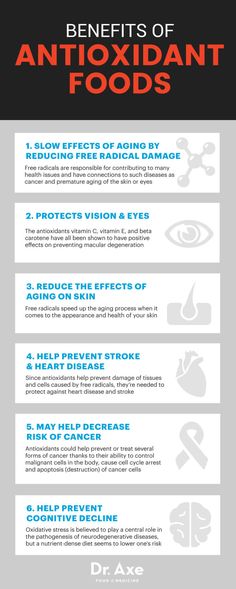
many diseases, including heart disease and certain cancers.
Antioxidants scavenge free radicals from the body cells, and stop or
reduce the damage caused by oxidation. But it isn’t apparent if this is
because of the antioxidants, something else in the foods, or other
factors.
It is important to note that high-dose supplements of antioxidants could also be linked to health
risks in some cases. For example, high doses of beta-carotene may
increase the danger of lung carcinoma (cancer) in smokers. High doses
of vitamin E may increase risks of glandular (prostate) cancer and one
form of stroke. Antioxidant supplements may also interact with some
medicines. To minimize risk, talk to your health care professional
about any antioxidants you use.
What happens with an antioxidant deficiency
Antioxidant deficiency usually occurs when intake through the diet is inhibited. This results in the development of free radicals.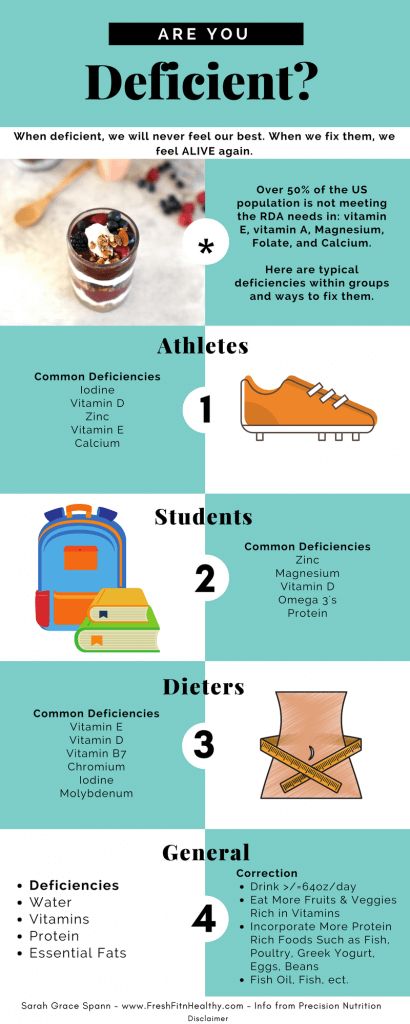
Free radicals are continually being formed in our bodies. Without antioxidants, free radicals would cause serious harm very quickly, ultimately resulting in death. However, free radicals also serve important functions that are crucial for health (1Trusted Source).
For example, your immune cells use free radicals to combat infections. As a result, our body needs to sustain an accurate balance of free radicals and antioxidants.
Although free radicals have their benefits, they must be controlled. When free radicals outnumber antioxidants, it will directly lead to a state called oxidative stress. Perpetual oxidative stress can damage our DNA and other crucial molecules in our bodies. Sometimes it can even lead to cell death.
Damage to our DNA boosts the risk of cancer, and several scientists have theorized that it plays an essential role in the aging process (3Trusted Source, 4Trusted Source).
Several lifestyle, stress, and environmental issues are known to promote excessive free radical formation and oxidative stress, including: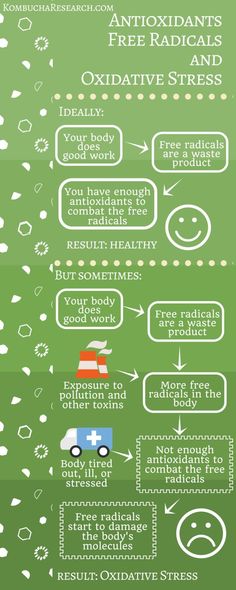
- air pollution
- alcohol intake
- antioxidant deficiency
- bacterial, fungal, or viral infections
- cigarette smoke
- toxins- exposure to chemicals, such as pesticides and drugs, including chemotherapy and industrial solvents.
- high blood sugar levels
- high intake of polyunsaturated fatty acids
- radiation, including excessive sunbathing
- excessive intake of iron, magnesium, copper, or zinc
- too much or too little oxygen in your body
- intense and prolonged exercise, which causes tissue damage
- excessive intake of antioxidants, such as vitamins C and E
- Ozone
Such activities and exposures can result in cell damage or cell death.
This, in turn, may lead to:
- an excessive release of free iron or copper ions
- an activation of phagocytes, a type of white blood cell with a role in fighting infection
- an increase in enzymes that generate free radicals
- a disruption of electron transport chains
All these can result in oxidative stress.
The destruction caused by oxidative stress has been connected to cancer, atherosclerosis, and vision loss. It is thought that the free radicals cause changes within the cells that cause these and possibly other conditions. An intake of antioxidants is believed to scale back these risks.
According to one study, antioxidants act as radical scavenger creating an intracellular and extracellular environment to detoxify.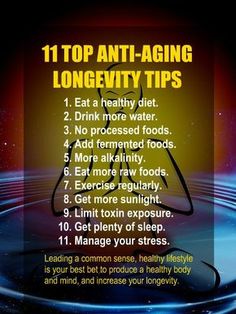
Bottom line: Healthy diets, proper rest, exercise and controlled stress in most cases helps us to maintain good health.
Please feel free to leave any question, comment, or concern below.
Good Health!!
Wow! This is really a great post to see out here. The health benefits attàched to the use of antioxidant is really massive and though I do not really have much idea about them before, you have given a know how guide and thank you for that. I will try all my best to get for myself antioxidants as much as I can afford. Thanks
Yes sir – Those antioxidants help to keep things balanced on the cellular lever. Free radicals if left unchecked can cause significant harm. Thanks for commenting!
Thanx, to give us a fantastic article.I really enjoy your article.I learned more about the Health Benefits of Antioxidants from your article.I am very aware of health. You have described its benefits in beautiful ways. From your article, I learned that whats sources of antioxidants. That’s you really deserve praise.I have learned a lot from it. everyone needs to know about it. This has seemed to be good.
I will share it on my social media. My friend and family person will know about antioxidants.
Hi Alamigir – I’m glad you enjoyed the article and thanks for commenting!